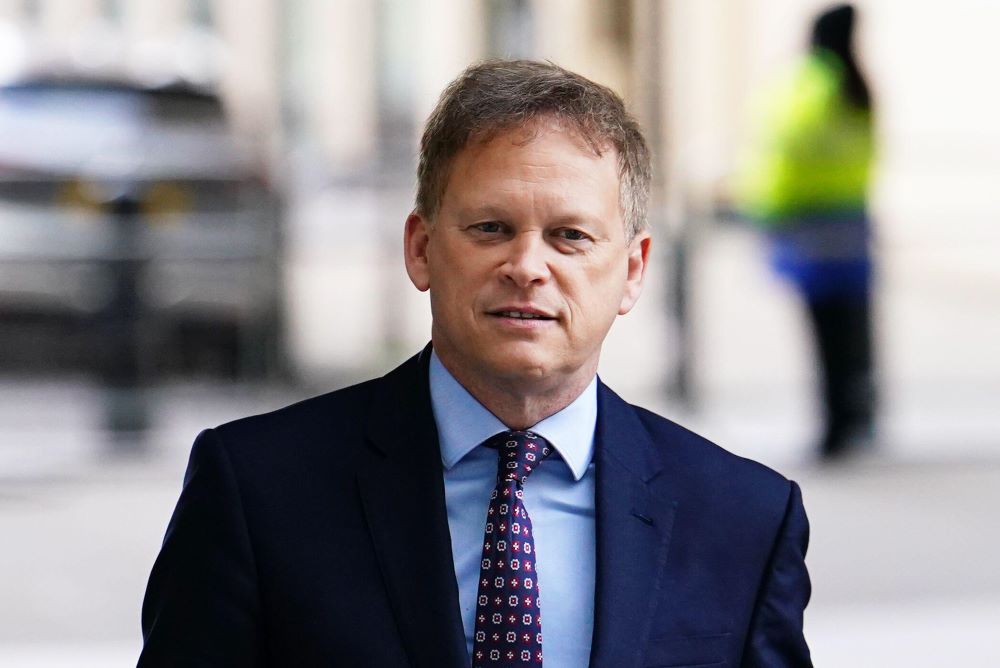Grant Shapps Says "Clearly" Liz Truss Tax Cuts Were Wrong
Liz Truss has defended her chaotic time in Downing Street (Alamy)
4 min read
Business secretary Grant Shapps has dismissed former prime minister Liz Truss's approach to the economy but insists the Conservative party should still be working towards tax cuts.
Shapps told the BBC that “people don’t want our taxes to be higher than they need to be” but said "clearly" Truss's decision to make a number of unfunded tax cuts last autumn, which led to economic chaos and her swift exit from office, was not the right one.
He argued that dealing with issues such as high inflation and debt had to be the priority before the party could consider tax cuts, echoing the approach of current Chancellor Jeremy Hunt.
In her first major comment since her tumultuous 49-day stint in office, Truss insisted she was “not given a realistic chance” to enact her economic policies, and “underestimated” the resistance to her plans from the markets.
Truss resigned in October after just seven weeks in office following pressure from her own party when the mini-Budget’s £45billion of unfunded tax cuts caused a record fall in the pound.
Shapps, who accepted a job under Truss as Home Secretary, and now serves in Rishi Sunak's Cabinet, said this morning that “everyone wants a lower tax economy” but the “truth is [....] what you’ve got to do first is deal with the big structural issues: deal with inflation first, deal with the debt.”
He told Sky News’ Sophy Ridge on Sunday programme that while "I completely agree with Liz’s instinct to have a low tax economy," the current economic conditions were not compatible.
“What we also know is if you do that, before you've dealt with inflation and dealt with the debt, then you end up in difficulty, you can't get the growth out of nowhere,” he said.
Shapps echoed his reticence to Truss's vision on BBC’s Laura Kuenssberg programme.
"Do I think we should have a lower tax economy? The answer: yes, absolutely," he explained.
But he reiterated that Truss's approach "clearly" wasn't the way to achieve that.
Truss, who was the shortest serving prime minister in history, wrote in The Sunday Telegraph that she was not “claiming to be blameless in what happened” but suggested that her mandate as party leader and prime minister had not been respected.
“Fundamentally I was not given a realistic chance to enact my policies by a very powerful economic establishment, coupled with a lack of political support,” she wrote.
“I assumed upon entering Downing Street that my mandate would be respected and accepted. How wrong I was. While I anticipated resistance to my programme from the system, I underestimated the extent of it.”
The mini-Budget included plans to abolish the top rate of income tax and uncap bankers bonuses. The income tax plans were ditched just 10 days later, while the party membership was at its annual conference in Birmingham.
Truss also said she was “deeply disturbed” by having to sack her chancellor Kwasi Kwarteng. He lost the job after just 38 days in office, and was replaced by Jeremy Hunt, who immediately began to unpick the majority of the announced tax cuts in an attempt to bring stability back to the markets.

She suggested that Kwarteng’s push to deliver the economic plan was “the right thing to do” but the “forces against it” had been too great to proceed.
“Kwasi Kwarteng had put together a brave package that was genuinely transformative – he is an original thinker and a great advocate for Conservative ideas,” Truss wrote.
“But at this point, it was clear that the policy agenda could not survive and my priority had to be avoiding a serious meltdown for the UK.
“I still believe that seeking to deliver the original policy prescription on which I had fought the leadership election was the right thing to do, but the forces against it were too great”.
